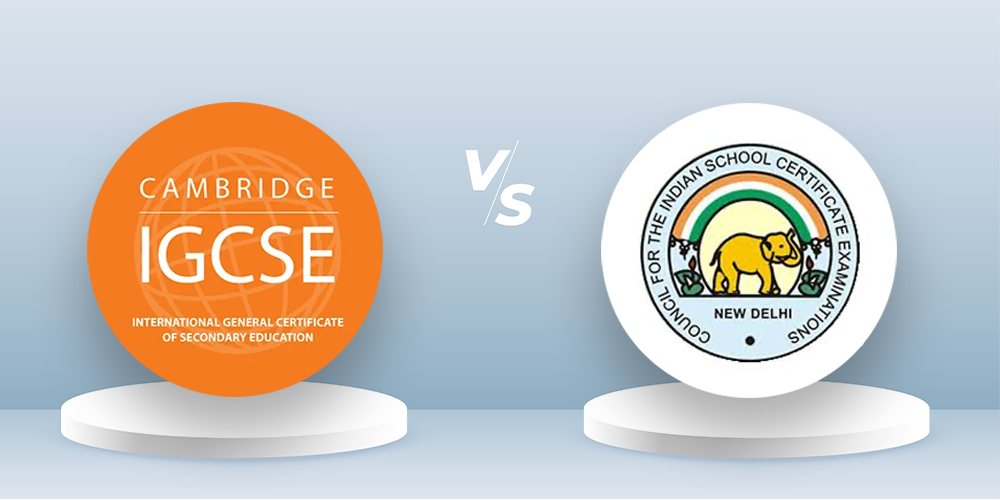
Boards of education are particularly relevant to contour a student’s educational path. In India the two preferred types of certification are the ICSE (Indian Certificate of Secondary Education) and the IGCSE (International General Certificate of Secondary Education).
When choosing an educational board for your child, two popular options often come into play: ICSE and IGCSE.
However, an analysis of curricula shows that both lead character types provide a comprehensive learning program, but more suited to different learning modes, objectives, and potential career paths.
The choice is a bit like IGCSE vs ICSE, both are good, but each has its pluses for different situations.
So , how to make a decision ?
Which one do you want, the rock bottom Indian ICSE or the world’s more flexible IGCSE?
Now let’s take a look at the major differences between them to make the decision easier and choose the best exam system for your child.
Contents
What is the IGCSE Board?
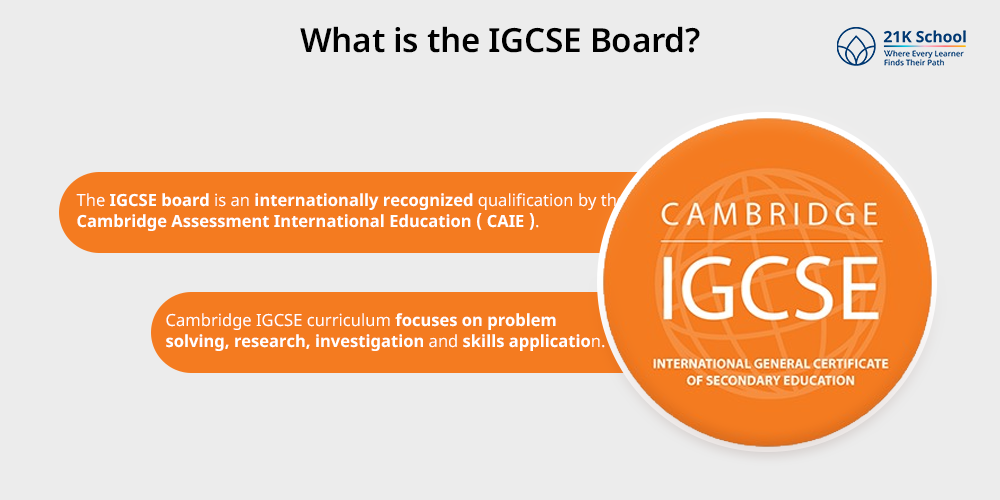
The IGCSE board is an internationally recognized qualification by the Cambridge Assessment International Education ( CAIE ).
It is for students in the 9th and 10th grades, that is, students at the age of 14 to 16 years and corresponds to the GCSE in Great Britain.
Cambridge IGCSE curriculum focuses on problem solving, research, investigation and skills application. It is well-known globally and therefore many students prefer it because it can directly admit them to international parental institutions.
What is the ICSE Board?
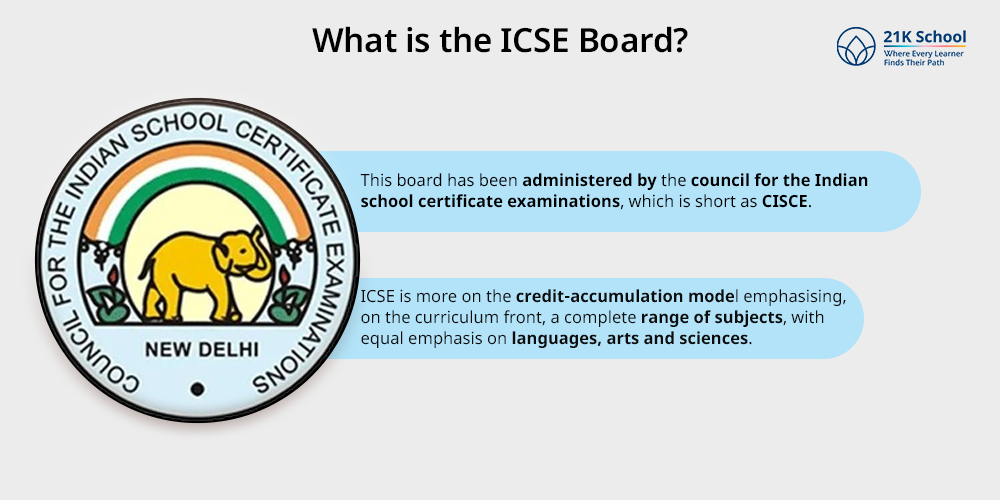
This board has been administered by the council for the Indian school certificate examinations, which is short as CISCE.
Considered as a national level board in India, it offers a structure in which students can receive a balanced curriculum in their 10th and 12th standard.
ICSE is more on the credit-accumulation model emphasising, on the curriculum front, a complete range of subjects, with equal emphasis on languages, arts and sciences.
Comparison Between ICSE and IGCSE
| Parameter | ICSE | IGCSE |
| Curriculum Focus | Emphasises a broad-based, detailed curriculum. | Focuses on international perspectives and practical knowledge. |
| Global Recognition | Recognized primarily in India. | Highly recognized worldwide. |
| Assessment Style | Theory-heavy with a focus on written exams. | Mix of theory, coursework, and practicals. |
| Subject Choices | Limited flexibility in subject selection. | Offers a wide range of subjects with flexible choices. |
| Teaching Methodology | Traditional, textbook-based learning. | Inquiry-based, focuses on critical thinking. |
| Flexibility in Subject Selection | Less flexible, predefined subject groups. | Highly flexible, allows students to choose subjects freely. |
| Academic Rigour | High academic rigour, especially in languages and sciences. | High rigour with a focus on application-based learning. |
| Languages Offered | Emphasises English and second languages (Indian languages included). | Offers multiple languages, including international languages. |
| Grading System | Percentage-based grading. | Alphabetical grading (A* to G). |
| Preparation for Higher Education | Well-suited for Indian competitive exams. | Prepares students for international university admissions. |
| Skill Development Focus | Emphasises theoretical knowledge. | Focuses on analytical and practical skills. |
| Affiliation & Governance | Managed by CISCE, an Indian board. | Managed by Cambridge Assessment International Education. |
IGCSE: Advantages and Disadvantages
Advantages of IGCSE Board
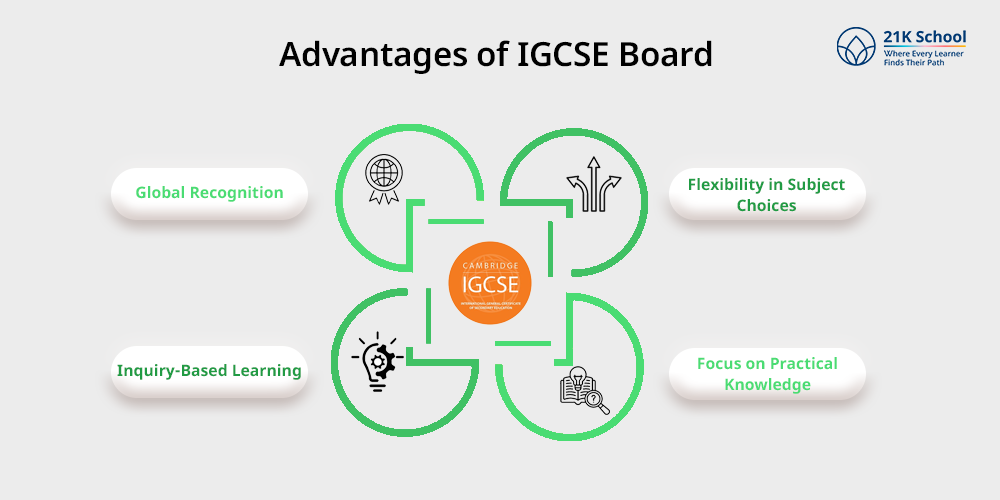
- Global Recognition: IGCSE is recognized and accredited by universities and employers around the globe thus a perfect system for students who desire cross- national careers.
- Flexibility in Subject Choices: The board offers the option of selecting a wide spectrum of subjects giving students an opportunity to express their interests and ease their way to the career paths they desire.
- Focus on Practical Knowledge: To this effect, the curriculum focuses on Project based work, Thinking skills and Applications in the workplace.
- Inquiry-Based Learning: The teaching approach involves provision of questions whereby the student is allowed to develop a thinking ability that makes him or her curious and innovative.
Guide to IGCSE: Everything Students & Parents Need to Know
Drawbacks of IGCSE India
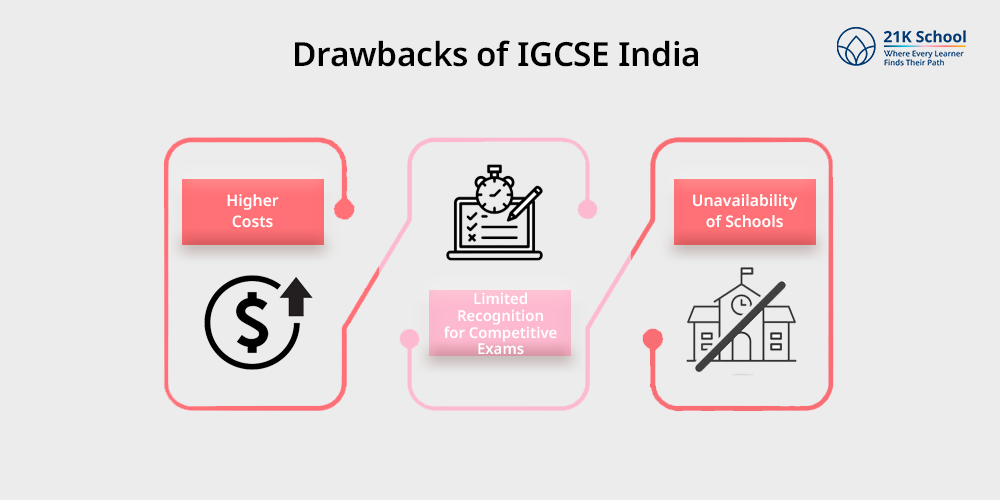
- Higher Costs: Unlike national boards, the fees for IGCSE schools are relatively high making it even harder for most families to afford.
- Limited Recognition for Competitive Exams: While the IGCSE course is a conventional international syllabus known across the world, it may not completely conform to many exams held in India including JEE or NEET.
- Availability of Schools: The curriculum is currently not widely spread and accessible to students across India mainly because the number of schools that teach IGCSE is comparatively lower than Schools that teach other international curriculums.
ICSE: Advantages and Disadvantages
Advantages of ICSE Board
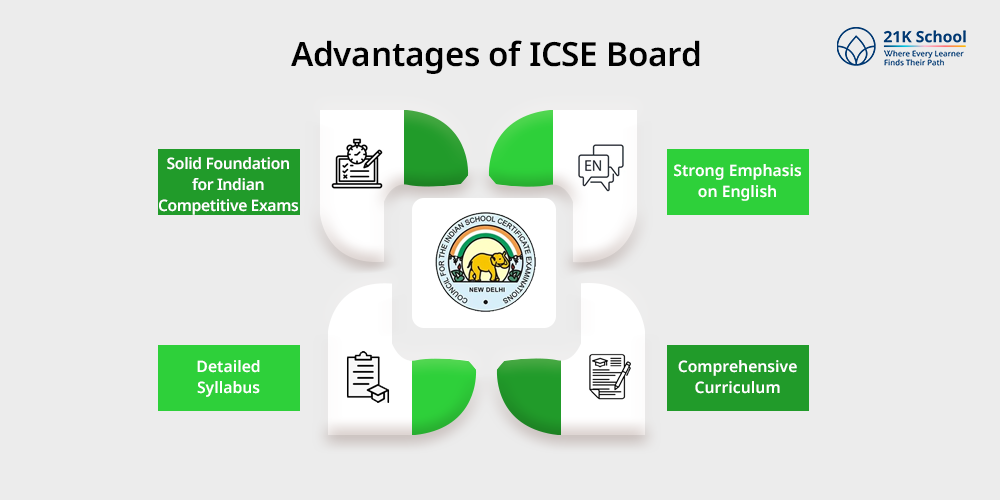
- Strong Emphasis on English: The ICSE gives paramount importance to English and equals the student with a complete linguistic course that is fruitful in higher learning and career.
- Comprehensive Curriculum: The board presents and integrates a number of learning areas including science, arts and humanities; therefore, this guarantees the overall development of students academically.
- Solid Foundation for Indian Competitive Exams: The knowledge accomplished in ICSE curriculum makes it apt for students’ preparation to face competitive examinations in India.
- Detailed Syllabus: Syllabi ensure course coverage of topics is well done making it easy for students to develop and install a strong understanding of certain fundamentals.
Disadvantages of ICSE Board
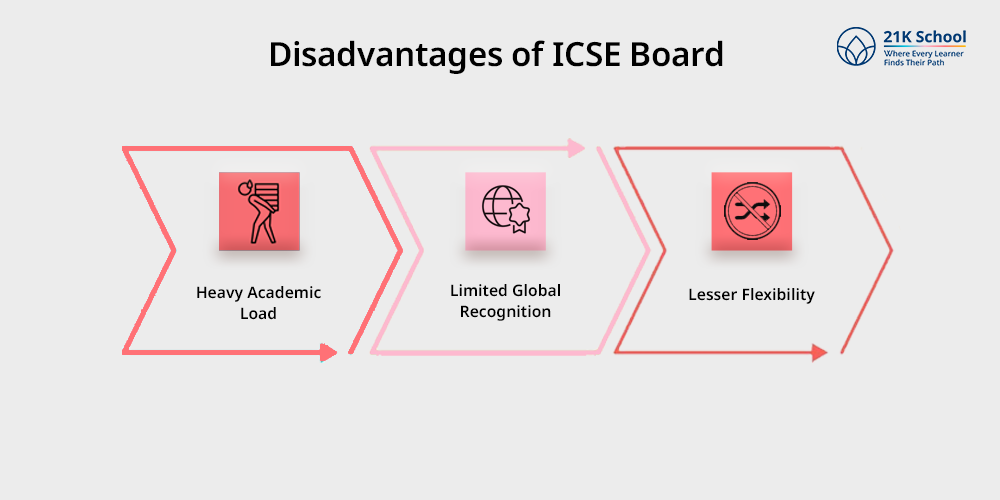
- Heavy Academic Load: However, this detailed and exhaustive curriculum can be quite demanding to some students especially those who learn best through the application model.
- Limited Global Recognition: Although being accredited in India, the ICSE board is relatively unknown outside of the country in comparison with international boards such as IGCSE.
- Lesser Flexibility: The board only allows students a certain degree of choice in what they want to study through the fact that the board has a set curriculum.
Conclusion
ICSE or IGCSE? Again, it depends on whether your child requires a certain academic curriculum, what their planned careers are and what they want later in life for themselves.
If you are in for an education program that will prepare you to face worldwide competition and is flexible and very much down to earth, then IGCSE is for you.
On the other hand, if one wants the board that offers the students a good grip on traditional curriculum and would prepare them for Indian competitive examinations then ICSE can be a better option.
Each board has its advantages and disadvantages and this factor should also be taken into account when making the decision.
